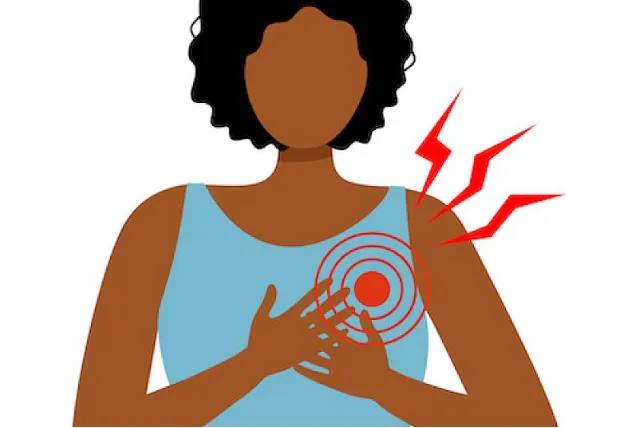Revolutionizing Patient Monitoring: The Role of Wearable Health Devices

Wearable health devices are rapidly transforming the way we monitor health, revolutionizing patient care by providing real-time, continuous insights into vital statistics. These devices are not just fitness trackers; they have evolved into sophisticated tools capable of measuring key health metrics such as heart rate, blood pressure, blood glucose levels, and even oxygen saturation. With advancements in technology, wearable health devices have become indispensable for both healthcare professionals and patients, enhancing the quality of care and improving overall health outcomes.
How Wearable Health Devices Are Changing Patient Monitoring
One of the most significant impacts of wearable health devices on patient monitoring is their ability to provide continuous, real-time data. Traditional patient monitoring often involves periodic visits to a clinic or hospital for routine check-ups. However, wearable devices allow for continuous monitoring in everyday settings, making it easier to track changes in a patient’s health status and detect potential issues before they escalate into serious problems.
For example, wearable ECG (electrocardiogram) monitors can track heart rhythms, helping detect arrhythmias or other heart conditions. Similarly, devices like continuous glucose monitors (CGMs) are crucial for people with diabetes, as they enable them to track glucose levels in real time and adjust their diet or insulin usage accordingly. These devices significantly reduce the risk of complications by enabling timely interventions.
Moreover, wearable health devices improve patient engagement. By having access to their own health data, patients become more proactive in managing their health. With the ability to track progress over time, patients can make informed decisions and work closely with healthcare providers to adjust their care plans.
Improved Healthcare Outcomes and Reduced Healthcare Costs
Wearable health devices not only improve patient outcomes but can also help reduce healthcare costs. By monitoring conditions remotely, these devices reduce the need for frequent hospital visits and minimize hospital readmissions. Healthcare providers can also use the data to optimize treatment plans, ensuring that interventions are both timely and tailored to the patient's specific needs.
Furthermore, wearables help in managing chronic diseases more effectively. The continuous stream of data enables healthcare professionals to make more accurate decisions, reducing trial-and-error approaches and the time spent adjusting treatments. As a result, patients experience fewer health crises, which leads to fewer emergency interventions and lower healthcare costs in the long run.
Data Integration and Telemedicine
The data collected by wearable health devices can be integrated into electronic health records (EHRs) and shared with healthcare providers in real time. This integration not only streamlines the decision-making process but also improves the efficiency of healthcare delivery. With the rise of telemedicine, wearable devices have become an essential tool in remote consultations, allowing healthcare providers to monitor patients without needing them to visit the clinic.
For instance, wearable devices with built-in GPS can help track the location of elderly patients with dementia or those at risk of falls. This feature provides caregivers with added peace of mind, ensuring that they are always informed about the patient's well-being.
Top Companies and Websites in Wearable Health Devices
1. Fitbit: Known for its fitness trackers, Fitbit now offers advanced health tracking features, including heart rate monitoring and sleep tracking.
[https://www.fitbit.com](https://www.fitbit.com)
2. Apple: Apple Watch is equipped with numerous health-tracking features such as ECG, blood oxygen monitoring, and heart rate tracking.
[https://www.apple.com](https://www.apple.com)
3. Garmin: Garmin offers a range of wearables designed for fitness and health monitoring, including heart rate sensors and sleep tracking.
[https://www.garmin.com](https://www.garmin.com)
4. Omron: Specializes in blood pressure monitoring devices and offers wearables to track heart health.
[https://www.omronhealthcare.com](https://www.omronhealthcare.com)
5. Dexcom: Known for its continuous glucose monitoring (CGM) systems that help patients with diabetes manage their blood sugar levels.
[https://www.dexcom.com](https://www.dexcom.com)
6. Withings: Offers a wide range of health-focused wearables, including smart scales, sleep monitors, and activity trackers.
[https://www.withings.com](https://www.withings.com)
7. Abbott: Their Freestyle Libre system provides continuous glucose monitoring for diabetic patients.
[https://www.abbott.com](https://www.abbott.com)
8. Fitbit Health Solutions: Provides workplace wellness programs and healthcare solutions through wearable devices.
[https://healthsolutions.fitbit.com](https://healthsolutions.fitbit.com)
9. Biobeat: Specializes in medical-grade wearable health devices to monitor heart rate, blood pressure, oxygen saturation, and more.
[https://www.biobeat.com](https://www.biobeat.com)
10. Kardia by AliveCor: Offers portable ECG monitors that help users track heart health in real time.
[https://www.alivecor.com](https://www.alivecor.com)
Comparison of Popular Wearable Health Devices
<table style="width:100%; border: 1px solid #dcdcdc;">
<tr style="background-color: #f2f2f2;">
<th>Device</th>
<th>Key Features</th>
<th>Target Audience</th>
<th>Price Range</th>
</tr>
<tr>
<td>Fitbit Charge 5</td>
<td>Heart rate monitoring, sleep tracking, ECG</td>
<td>General consumers, fitness enthusiasts</td>
<td>$120 - $180</td>
</tr>
<tr>
<td>Apple Watch Series 8</td>
<td>ECG, blood oxygen monitoring, fall detection</td>
<td>Health-conscious individuals, seniors</td>
<td>$399 - $499</td>
</tr>
<tr>
<td>Garmin Forerunner 945</td>
<td>GPS, heart rate monitoring, sleep tracking</td>
<td>Athletes, outdoor enthusiasts</td>
<td>$599 - $649</td>
</tr>
<tr>
<td>Dexcom G7</td>
<td>Continuous glucose monitoring</td>
<td>Diabetic patients</td>
<td>Varies based on insurance coverage</td>
</tr>
<tr>
<td>Omron HeartGuide</td>
<td>Blood pressure monitoring, heart health tracking</td>
<td>Individuals with hypertension</td>
<td>$499</td>
</tr>
</table>






